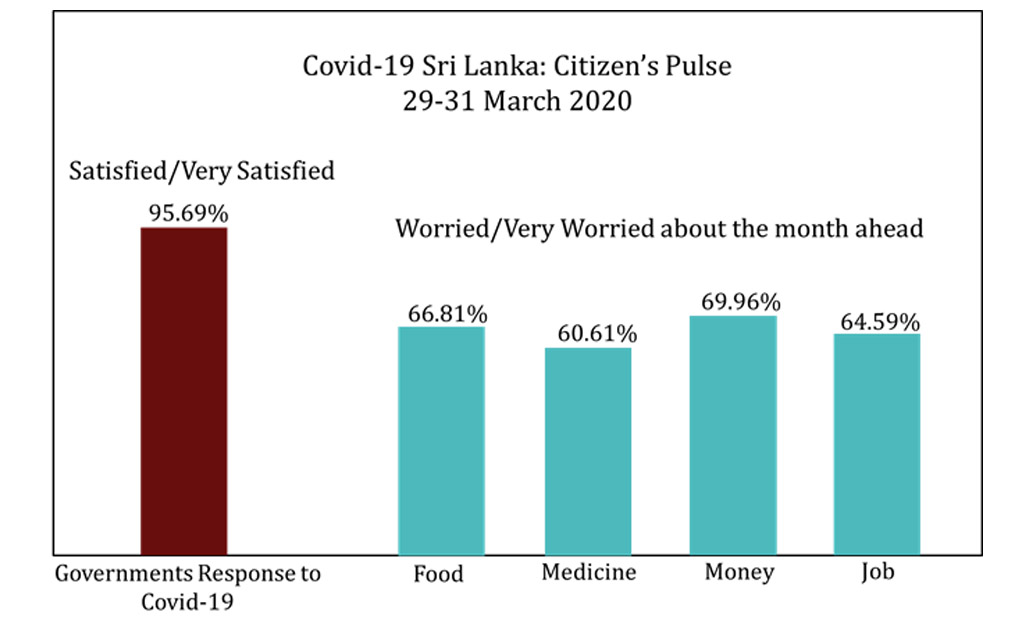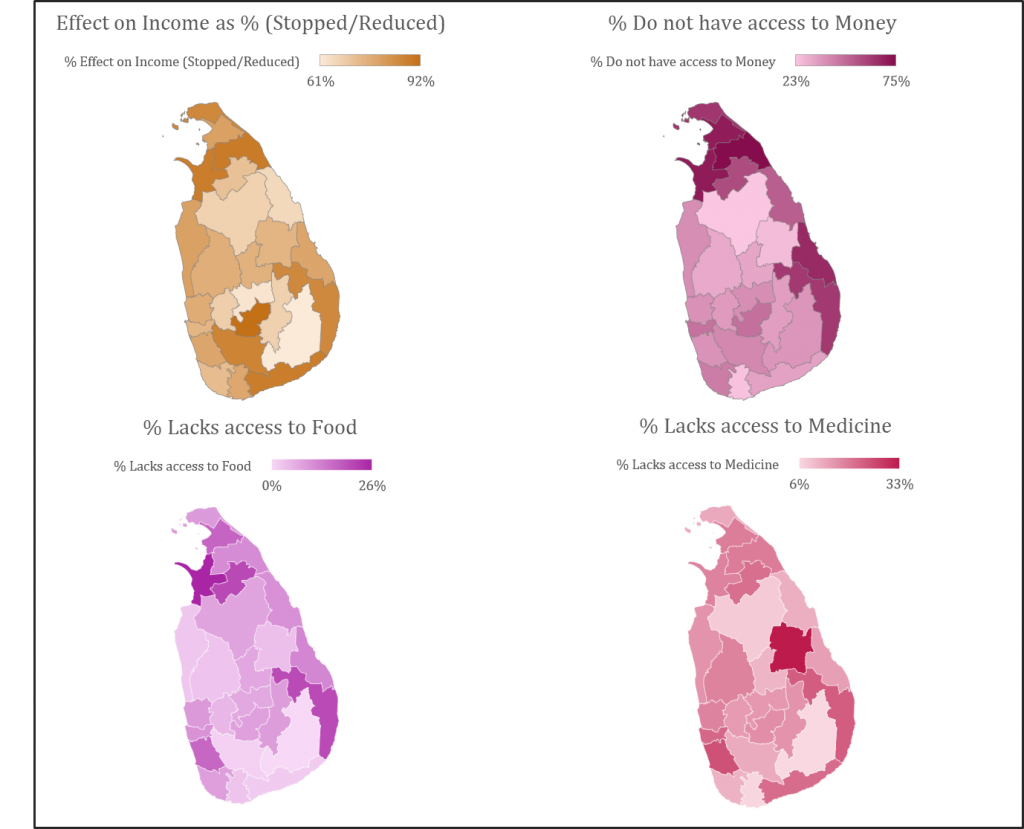Vanguard Survey Pvt. Ltd. implemented a nation-wide telephone survey from the 29th to the 31st of March 2020, that was co-designed and analysed by Verité Research Pvt. Ltd. Data was analysed from 2,064 respondents over the age of 18.
Overwhelming satisfaction with government’s response
95.7% reported that they were “very satisfied” or “somewhat satisfied” with “how the government is trying to control the Covid-19 pandemic in Sri Lanka”. 73.11% of the respondents were “very satisfied”.
High insecurity about the future
60-70% rated them-selves at the high end of a five-point scale as “worried” or “very worried” about their job, as well as about access to medicine, food, and money, when asked “Are you worried about the month ahead on any of the following issues”. See Exhibit 1.
Exhibit 1: Overwhelming satisfaction with govt. amidst high insecurity

Exhibit 2 maps the district distribution of the respondents who are most affected by the government response to Covid-19.
Difficulties in coping with Finance
76% stated that their household income has either stopped or reduced due to the Covid-19 response. The percentages ranged from 61% in Moneragala to 92% in Nuwara Eliya.
44% indicated difficulties with finance. The percentages ranged from 23%-25% in Anuradhapura, Matara, and Polonnaruwa; and from 70%-75% in Mullaitivu, Mannar, and Killinochchi. Those who responded with: “we do not have adequate funds to manage”, “we borrowed/pawned to get adequate funds”, and “friends/relatives helped us get the necessary funds”, were classified as having difficulties with finance.
Difficulties in coping with Food and Medicine
9% reported that their “household does not have adequate access to food”. The highest was 26% in Mannar.
17% reported that their “household does not have adequate access to the necessary medicine”. It was above 30% in Polonnaruwa and above 20% in Hambanthota, Ampara, Colombo and Kalutara.
Exhibit 2: Citizen’s pulse (29-31 March 2020): difficulties in coping with COVID-19 response.

